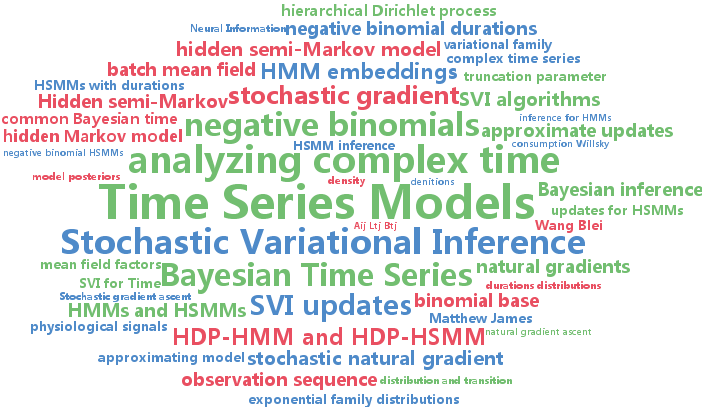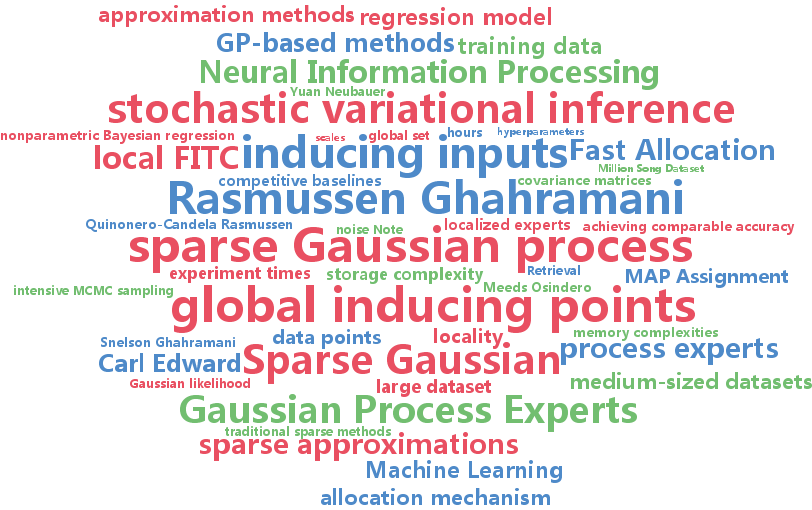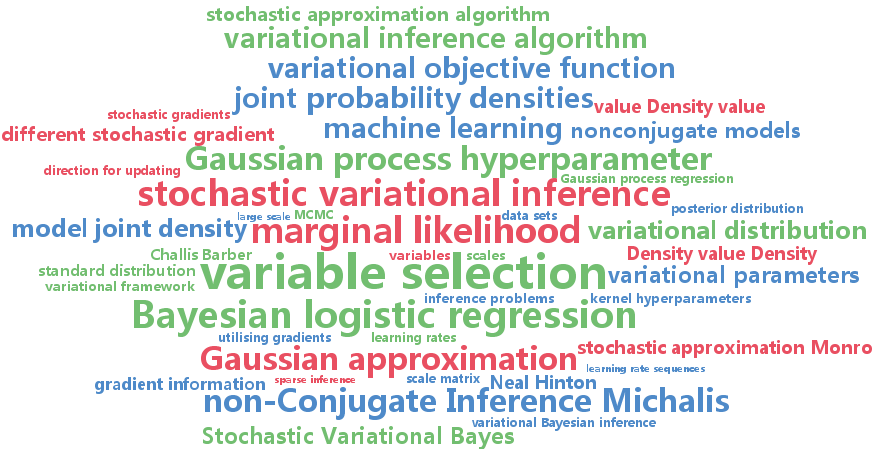stochastic variational inference
-
Matthew Johnson and Alan Willsky
Stochastic Variational Inference for Bayesian Time Series Models (pdf)
Bayesian models provide powerful tools for analyzing complex time series data, but performing inference with large datasets is a challenge. Stochastic variational inference (SVI) provides a new framework for approximating model posteriors with only a small number of passes through the data, enabling such models to be fit at scale. However, its application to time series models has not been studied. In this paper we develop SVI algorithms for several common Bayesian time series models, namely the hidden Markov model (HMM), hidden semi-Markov model (HSMM), and the nonparametric HDP-HMM and HDP-HSMM. In addition, because HSMM inference can be expensive even in the minibatch setting of SVI, we develop fast approximate updates for HSMMs with durations distributions that are negative binomials or mixtures of negative binomials.
-
Trung Nguyen and Edwin Bonilla
Fast Allocation of Gaussian Process Experts (pdf)
We propose a scalable nonparametric Bayesian regression model based on a mixture of Gaussian process (GP) experts and the inducing points formalism underpinning sparse GP approximations. Each expert is augmented with a set of inducing points, and the allocation of data points to experts is defined probabilistically based on their proximity to the experts. This allocation mechanism enables a fast variational inference procedure for learning of the inducing inputs and hyperparameters of the experts. When using $K$ experts, our method can run $K^2$ times faster and use $K^2$ times less memory than popular sparse methods such as the FITC approximation. Furthermore, it is easy to parallelize and handles non-stationarity straightforwardly. Our experiments show that on medium-sized datasets (of around $10^4$ training points) it trains up to 5 times faster than FITC while achieving comparable accuracy. On a large dataset of $10^5$ training points, our method significantly outperforms six competitive baselines while requiring only a few hours of training.
-
Michalis Titsias and Miguel Lázaro-Gredilla
Doubly Stochastic Variational Bayes for non-Conjugate Inference (pdf)
We propose a simple and effective variational inference algorithm based on stochastic optimisation that can be widely applied for Bayesian non-conjugate inference in continuous parameter spaces. This algorithm is based on stochastic approximation and allows for efficient use of gradient information from the model joint density. We demonstrate these properties using illustrative examples as well as in challenging and diverse Bayesian inference problems such as variable selection in logistic regression and fully Bayesian inference over kernel hyperparameters in Gaussian process regression.


